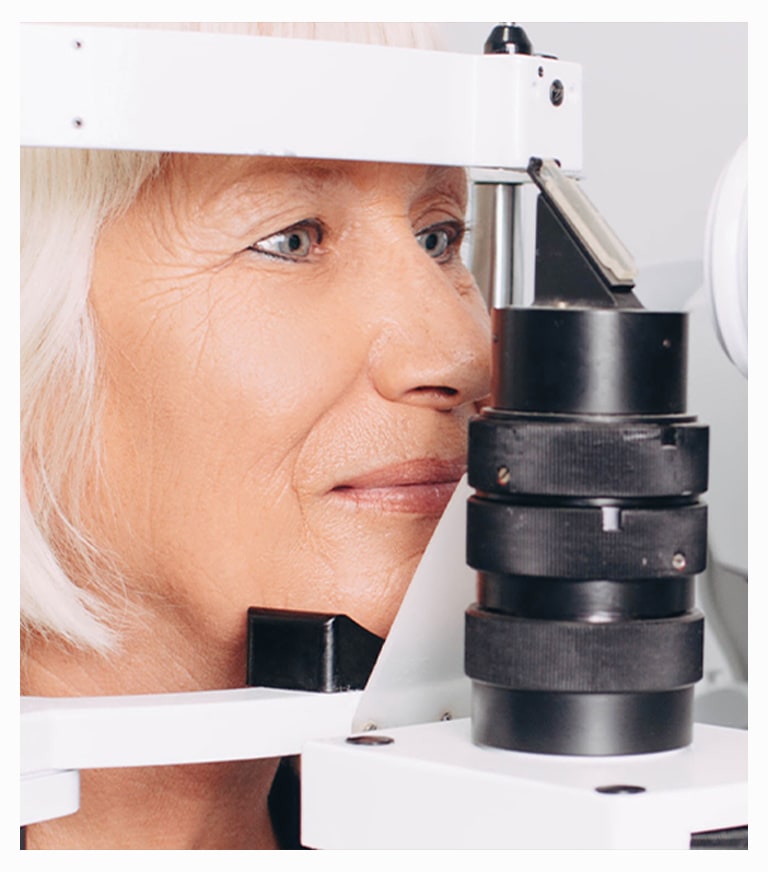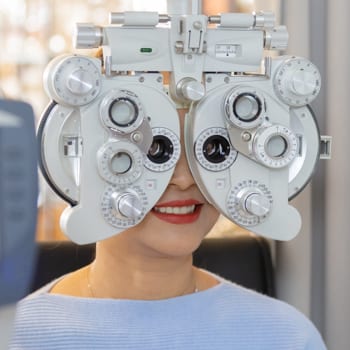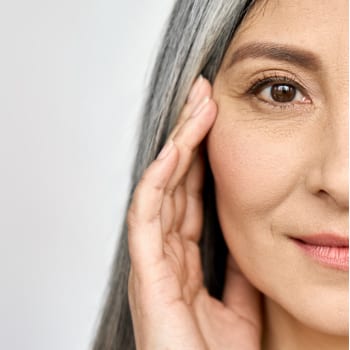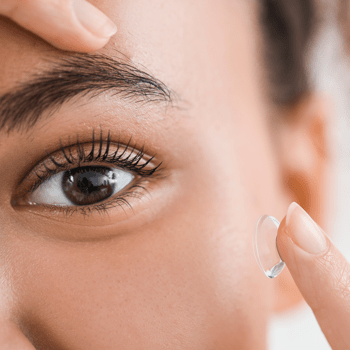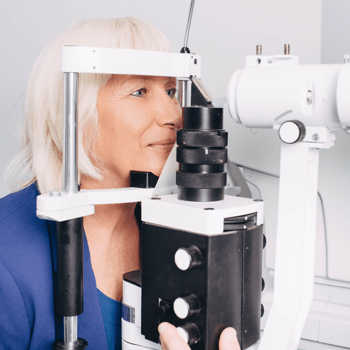Preserve Your Vision
Your eyes are precious parts of your body and need to be well looked after. During our comprehensive eye exams, we test your ocular health using proven diagnostic technology. We look for signs of eye diseases, even if you are asymptomatic, because many conditions start without causing changes to your vision.
With every patient, we strive to find any eye conditions early and start treatment to prevent them from causing potentially irreversible damage.
Schedule your regular eye exam so we can help you take care of your eyes.
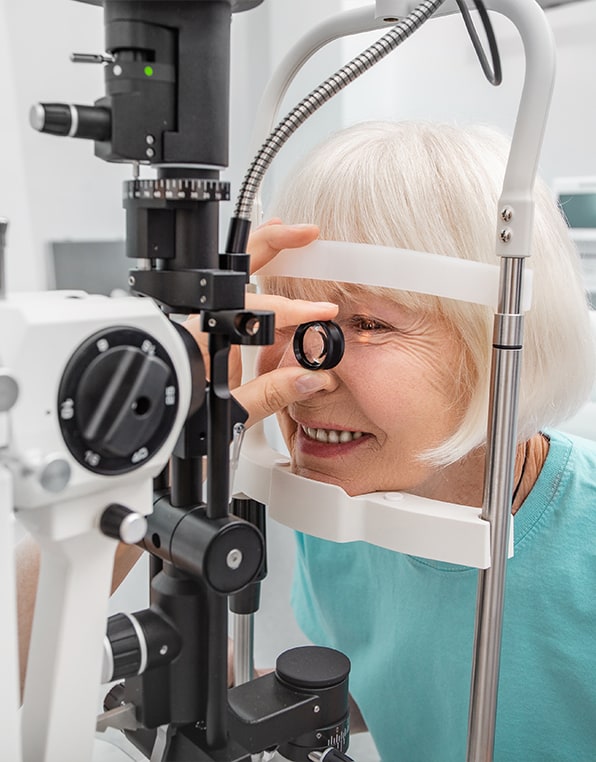
What’s Your Risk for Developing Eye Problems?
The risk of developing an eye disease is unique to each person. That’s why regular comprehensive eye exams can make a difference in prevention and treatment.
We take the time to personally get to know your eyes and vision, keeping an eye out for conditions you might be more prone to and tracking changes in your eyes as time goes on. Then, if we detect any concerns, we can take appropriate action early.
Common Eye Diseases & Conditions
Your eyes are the only ones you have, and taking care of them can mean preserving your future vision. Learn about some common eye diseases, and possible symptoms to watch for so you can discuss your visual health at your next eye exam.
Glaucoma
Glaucoma is a group of eye conditions that affect the optic nerve, which sends messages from the eye to the brain.
The most common type is open-angle glaucoma, where excess fluid raises eye pressure. We use tonometry to test intraocular pressure.
Early symptoms of glaucoma often go unnoticed, resulting in gradual vision loss. However, some forms of glaucoma can develop rapidly, showing early symptoms like hazy vision, severe eye pain, or sudden sight loss.
Untreated glaucoma can cause blindness. Treatments to prevent vision loss include eye drops, oral medication, laser treatment, or a combination.
Cataracts
Later in life, many people will experience cataracts.
Cataracts appear as your eye’s lens becomes more rigid with age, affecting your vision with symptoms like blurry or foggy vision, washed-out colours, light sensitivity, and the feeling that there’s a film over your eye.
In its early stages, we can correct vision impacted by cataracts with an updated glasses or contact lens prescription. However, if it progresses to the point that it impairs your vision significantly, we may recommend cataract surgery, a safe and effective method for removing cataracts and restoring vision.
Age-Related Macular Degeneration
Age-related macular degeneration (AMD) is a common eye disease among adults over 55. This disease slowly deteriorates your macula, the tiny but powerful part of your retina needed to maintain sharp central vision.
AMD appears in 2 forms: dry and wet. Dry AMD, the more common of the 2, slowly thins your macula as the disease progresses. With wet AMD, the macula swells due to abnormal blood vessels in your retina breaking and leaking. Wet AMD can cause irreparable vision loss.
We can easily look for signs of AMD during your eye exam to help prevent any future vision loss.
Conjunctivitis (Pink Eye)
You may know conjunctivitis by its common name, pink eye. This ocular condition can be viral, bacterial, caused by allergies, or exposure to chemicals.
Conjunctivitis symptoms can appear in 1 or both eyes and include redness, itchiness, irritation, and difficulty opening your eyes due to crust buildup from overnight mucus discharge.
Get in touch with us right away if you think you have conjunctivitis, so we can help restore your eye health and prevent the contagious form from spreading.
Retinal Detachment
Retinal detachment is a serious eye emergency in which the retina departs from its normal position in the visual system.
The detachment itself may not cause pain, but stay alert for these warning signs and seek immediate attention if you experience any of them:
- Sudden appearance of floaters and flashes
- Blurred vision
- Reduced peripheral vision
- A dark shadow over your visual field
Diabetic Eye Disease
Diabetes affects how your body uses blood sugar, increasing the risk of damage to the heart, kidneys, nerves, and eyes. Diabetic eye disease includes 4 conditions that can significantly impair vision:
- Diabetic retinopathy
- Diabetic macular edema
- Glaucoma
- Cataracts
Diabetic eye exams are crucial in monitoring not only eye health but whole body health, as we can examine the blood vessels at the back of the eye.
The Canadian Optometric Association and Diabetes Canada recommend patients with diabetes (types 1 and 2) have annual eye exams to aid in early detection and timely treatment.

Early Detection Can Help Save Your Sight
Getting regular eye health checkups is crucial to preventing eye conditions that can significantly impact your vision and overall quality of life.
Book your comprehensive eye exams and diabetic eye exams at Foresee Eyecare today. We’re here to help you preserve your sight.
Our Brands


- Anne & Valentin
- Blackfin
- Burberry
- Carrera
- DITA
- Dior
- Fendi
- Etnia Barcelona
- Kliik
- Lindberg
- ic Berlin
- MODO
- Maui Jim



- Nano
- OTP
- OGA
- Prada
- Saint Laurent
- Ray-Ban
- Starck
- Silhouette
- Tom Ford
- Tiffany
- Tomato Glasses
- WEWE
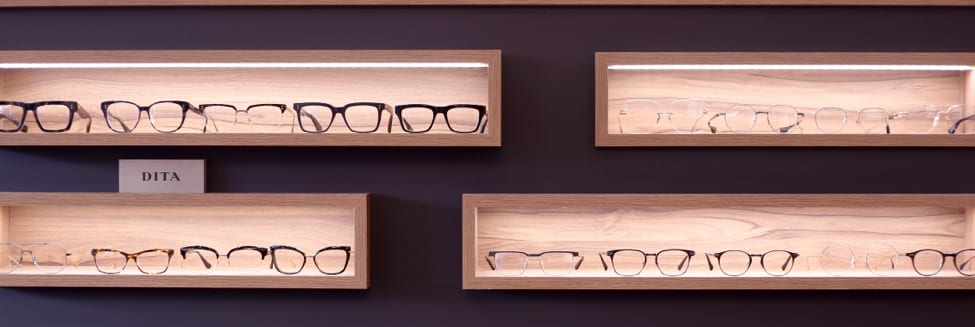

Visit Our Location
Our office can be found off of Major MacKenzie Drive West in the same plaza as the Medical Centre and Tim Hortons. The location of our office is 965 Major Mackenzie Dr. West, Units 3 & 4.
Hours of Operation
Our Address
- 965 Major Mackenzie Dr. West, Units 3 & 4
- Vaughan, ON L6A 4P8
Contact Information
- Phone: 289-553-EYES (3937)
- Fax: 289-553-3939
*Friday by appointment only.
**We are closed on the Saturdays of long weekends and holidays.


